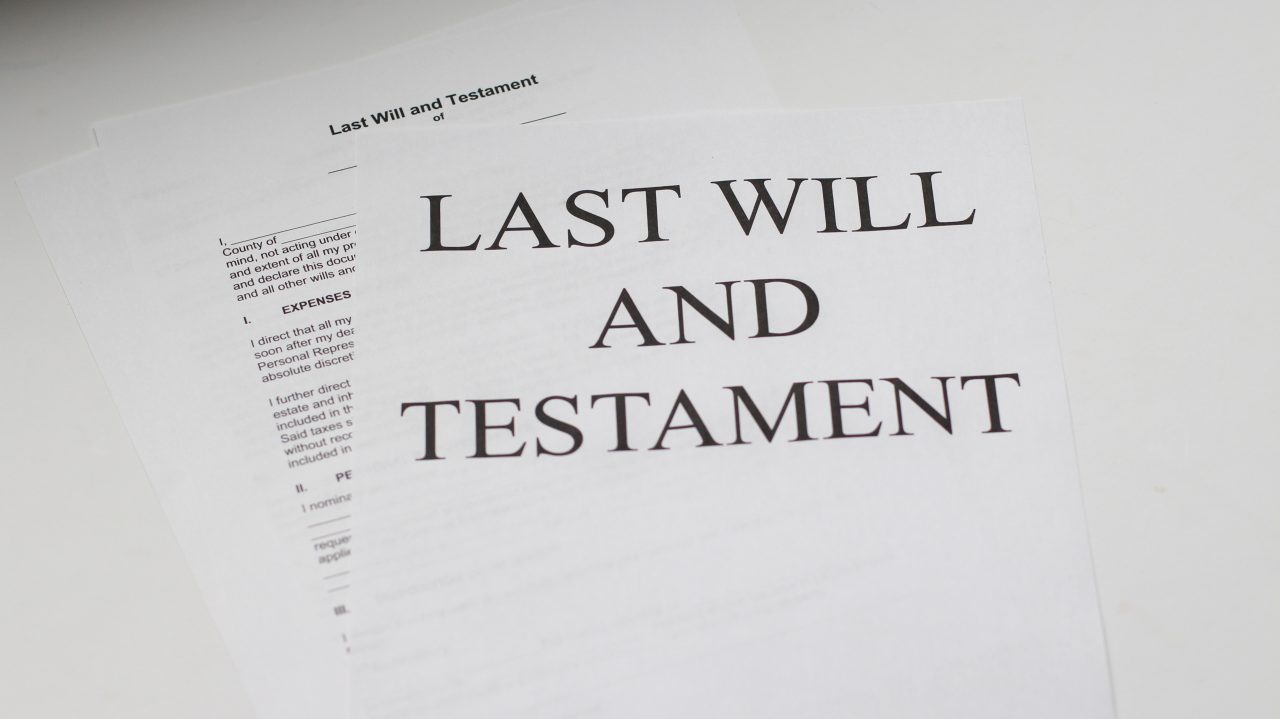One of the most common things I hear, whether it be from friends, family or someone in the community, is “I/We really need to get our Will done (or updated).” A Will is the first and most important step in creating what will be called your “estate plan”, but for most people it can also be the hardest. An estate plan can be as simple or as complex as you want and need it to be, but it all starts with your Will.
So What All Goes into a Will?
Your Last Will and Testament, as it’s more formally called, is just that: the last document to set out your wishes as to what you want to happen to the property you have control or ownership over at the time of your death. More specifically, a Will is where you can set out the following:
- How your property is devised: There are multiple pieces to devising your property in your Will:
- The first is a “laundry list” provision. This authorizes and states that you may keep a separate list of personal items (e.g. certain pictures or other heirlooms) and who is to receive those items. You are able to update this list whenever the need arises and give it authority by signing and dating it at the bottom. This list is much more handy for smaller items, as it doesn’t take updating your entire Will or estate plan to make changes.
- The second piece of devising your property is a specific devise. A specific devise is like the laundry list, but is usually saved for bigger items like a vehicle, piece of real property, or amount of money to be given to a specific person. You can make as many specific devises as you like within your Will.
- Finally, the third piece is the residual clause. This specifies who is to receive the “rest, residue and remainder” of your property after expenses, the laundry list and any specific devises. In the simplest of Wills, this may be the only clause you need, and is always included.
- Who will serve as a Guardian and Conservator for your minor children in the event you and your spouse would pass away prematurely. If not set out specifically in a Will, any interested person could petition the court as a potential Guardian and Conservator.
- Who will serve as the Personal Representative of your estate. Commonly called an Executor on TV and in movies, Nebraska uses the term Personal Representative. This person is responsible for, among other things:
- Opening and running your Estate (usually with the help of an attorney);
- Paying its bills and your debts;
- Maintaining your property such as your home;
- Transferring your property to those set out in your Will; and
- Determining and paying Nebraska Inheritance Tax and any applicable Federal Estate Tax.
- Who would serve as the Trustee of any trust you create under your Will. While the specifics of different trusts are a topic for another post, you are able to create a trust within your Will, which would be funded only at your death and under a specific set of circumstances. A common trust is set out to hold the inheritance of one’s children or grandchildren until they reach age 21 or 25, at which point their inheritance would be dispersed. If no trust is needed by the terms in your Will at the time you die, then no trust is created.
- Who is to NOT receive property from your Estate. While not thought of as often, there may be people in your life that you don’t want receiving anything from your Estate. This could be for personal reasons, estate planning reasons or other reasons (such as not increasing assets subject to a divorce or other legal action). Regardless of the reason, specifically disinheriting someone in your Will ensures your Estate goes where you want it to.
In short, your Will sets out what you want to happen after you pass away, and it can do a lot.
What Doesn’t Go into a Will?
While your Will can do a lot, there are some things it can’t do, such as devising an interest in jointly held property (real estate, bank accounts, investment accounts, etc.), property with a named beneficiary (investment accounts, bank accounts that are Payable on Death or POD), or real property with a Transfer on Death Deed of record.
Another main item that your Will does not control is what happens at your funeral. Your funeral and all related items should be discussed directly with both your family and the funeral home ahead of time. Your Will will most likely not be opened until after the funeral, at which point any such directions would become a moot point.
Finally, your Will is not your Power of Attorney, and vice versa. The Power of Attorney ends at death, therefore someone named Power of Attorney is not necessarily your Personal Representative. Both documents are important, but serve different roles.
All things considered, thinking about your last wishes and putting them in final form can be hard, no matter how many times you think “I really need to get my Will done.” Gray Law Firm, LLC will guide you painlessly through the process to create an estate plan that meets your needs. Contact us today to set up an appointment and discuss your needs today.

